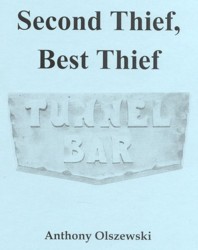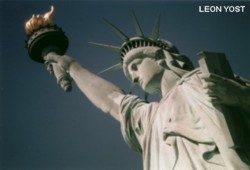 |  |  |
|
| ||
 |  |  |
 |  |  |
|
| ||
 |  |  |
|
|
|
Summations lasted three days, running into Saturday of the July 4th weekend. After the usual Sunday off, court resumed on the legal holiday, Monday, July 5, for Judge Shaw's charge. The jury retired at 1:40 P.M.
It was a scorching summer day-the temperature in the 80s, the air hot and sticky. The defendants, their lawyers, their followers-all but bookkeeper Stapleton-doffed their jackets and waited out the verdict in the deserted courthouse. Stern crossed the street to his fifth-floor office and had lunch at his desk, as usual. He was supremely confident.
"I had no doubt of what the verdict would be," he says. "I drew up a statement which I felt would summarize what the staff had accomplished. I didn't have long to draw it up. We were back across the street before I knew it."
Including a break for lunch, the jury needed only three hours and 35 minutes to digest and decide on seven weeks of testimony. It was barely enough time to fill in the 232 boxes on the verdict sheet-eight defendants, 29 counts (five counts were dismissed during the course of the trial).
Seven of the eight were found guilty on all counts. Only Kunz-against whom Stern admitted the evidence was weakest-escaped complete conviction; he was acquitted on 17 counts.
Sentencing came on August 10. Judge Shaw repeated the remarks Judge Barlow had made in sentencing Newark's Mayor Addonizio the year before. Then he went on:
"This is a vicious system," he said, "and the sentence should, among other things, serve the purpose as a deterrent. It should serve notice upon all politicians with like inclinations that when a crime is detected and there is a conviction, courts will not be inclined to deal lightly with it.... I find no ground for sympathy. . . . Sympathy or compassion should run in favor of the citizen who is the victim of this type of avaricious conduct."
The judge noted that he had received many letters asking for clemency, all with "the central theme [that] way of life in Jersey City and Hudson County...'
"I think the prevailing way of life should stop.''
Judge Shaw's sentences were stern (no pun intended) for white-collar criminals. Mayor Whelan, council president Flaherty and purchasing agent Murphy each got 15 years; Sternkopf got ten years, plus a $20,000 fine; Kropke got five; Stapleton and Kunz each received six months, plus 18 months' probation.
At separate hearings Wolfe and Corrado each received five-year suspended sentences. Judge Shaw found Wolfe to be a man of "limited intelligence" who "just doesn't have sufficient judgment to avoid being misled by other, strongerminded individuals." Wolfe was freed with the stipulation that he not participate in politics or hold any office of public trust. Corrado was freed because he had cooperated with the authorities.
Stern said the case proved that "the forces of corruption and venality in the public service, no matter how powerful. can be overcome-that our system can be changed from within."
Changed it was. At the next elections - in November 1971 - the Kenny machine did not even field a candidate for mayor of Jersey City. Dr. Paul Jordan, the 30-year-old
director of a drug-treatment clinic, won on what was for Jersey City a real reform platform, promising to finish "the job started by ... Stern."

|
|
| 08/18/2012 11:10 PM |
|
Computer Repair Blog XP Local Area Connection stuck at Acquiring Network Address |
 Your Ancestors' Story |
 Bruce Springsteen's Jersey Shore Rock Haven! |

|
UrbanTimes.com |